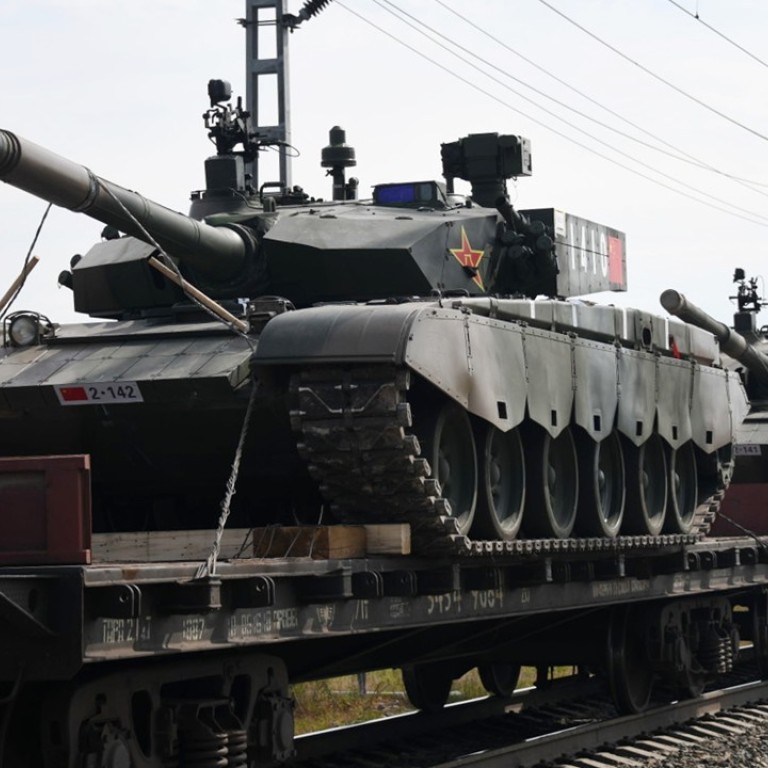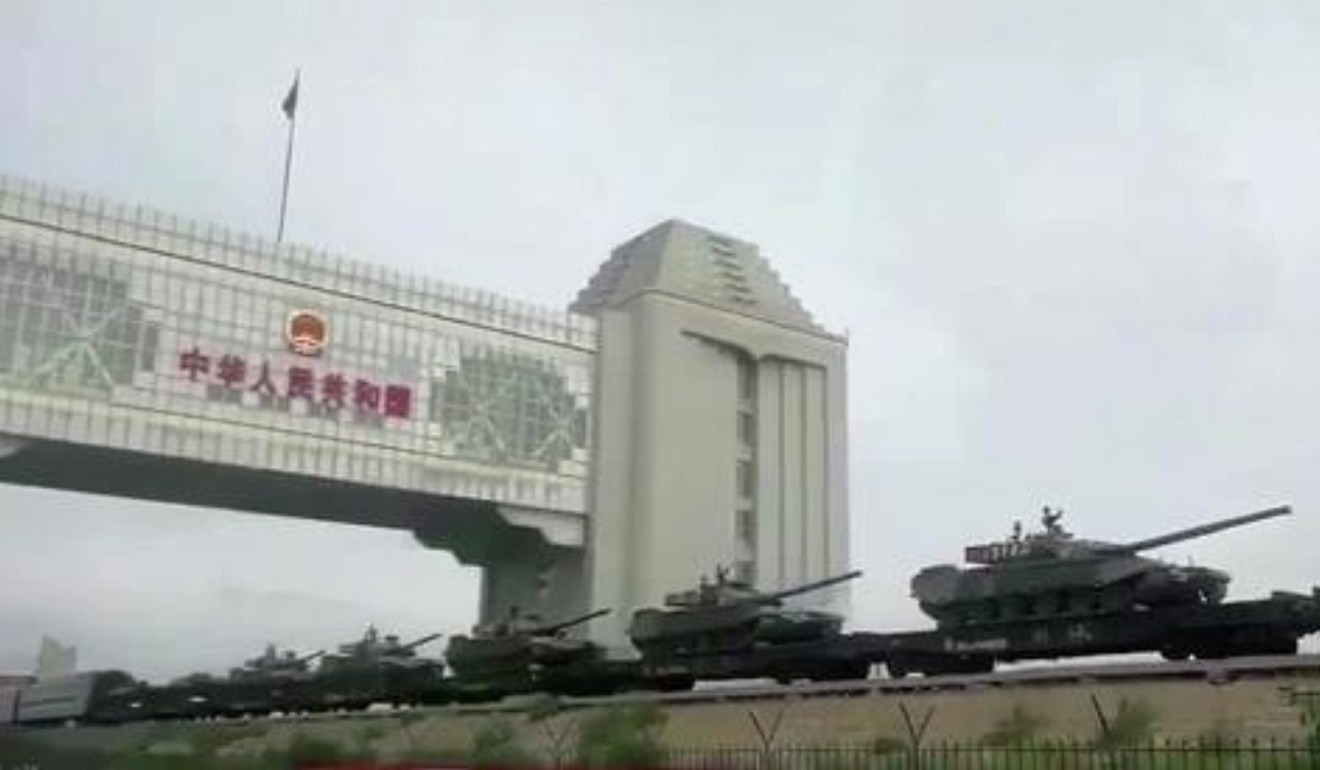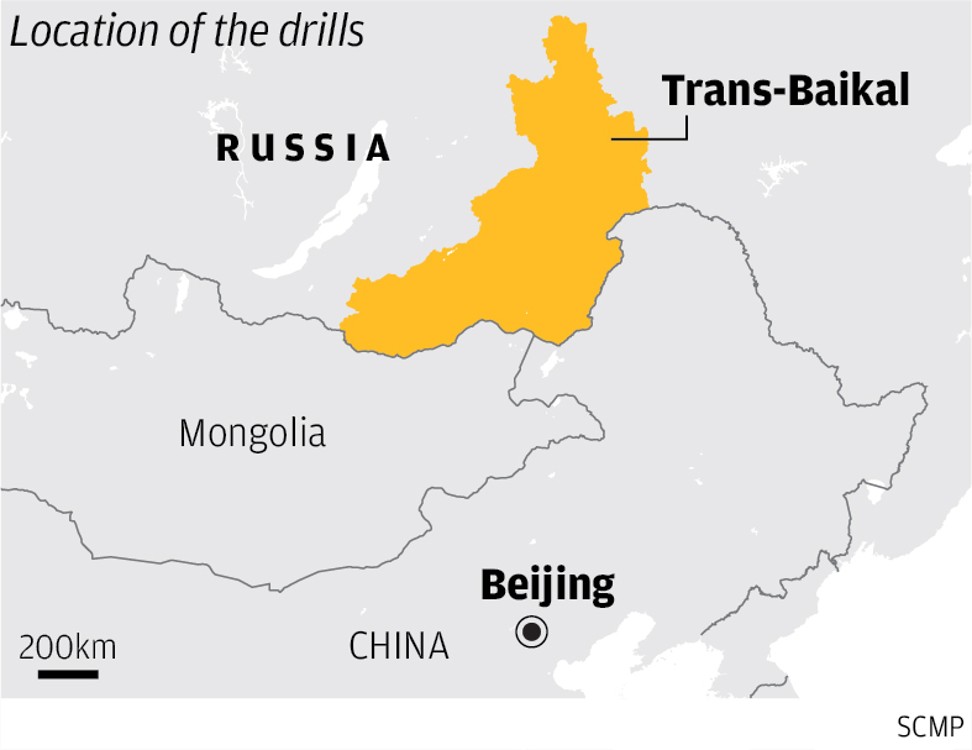
Vostok 2018 war games: China’s chance to learn Russia’s military lessons from Syria
China has not been in an armed conflict since its last war with Vietnam in the late 1970s
The Chinese armed forces will have the chance next month to learn from Russia’s combat experience in Syria when PLA personnel take part in Moscow’s biggest war games in decades, Chinese military sources and observers said.
Russia is preparing to mount Vostok 2018, what it says will be an “unprecedented military exercise” involving almost 300,000 troops and 1,000 aircraft. The war games are billed as the country’s biggest since 1981, when as many as 150,000 Soviet Army personnel were mobilised.
China’s elite troops head to Russia for massive Vostok 2018 war games
About 3,200 People’s Liberation Army (PLA) troops and 30 aircraft will take part in the joint exercises in the Tsugol training range in Russia’s far east Trans-Baikal region from September 11 to 15.
Chinese military tanks for the exercise were seen crossing the China-Russia border at Manzhouli in Inner Mongolia on Tuesday.
Hong Kong-based military analyst Song Zhongping said the war games were expected to be a chance for the PLA participants to draw on Russian expertise, including combat tactics and strategy from the wars in Syria and Chechnya.
The PLA is the only major military force that has no real battle experience and it is very eager to get its hands on some real lessons
“The role of the Chinese troops in Vostok 2018 is very limited … but given the [PLA] has not been in combat for decades, it’s a rare chance for them to learn,” Song said.
China has not been in an armed conflict since its last war with Vietnam in the late 1970s.
A Chinese military source said Russia had compiled some its lessons from the Syrian war in military textbooks for Russian military academies and it would be among the information shared with the Chinese troops.
“This will be the first time they have shared such information with a military outside the former Russian Empire,” the source said. “The PLA is the only major military force that has no real battle experience and it is very eager to get its hands on some real lessons.”

Beijing has long played a low-key role in the peace process in Syria, avoiding direct military involvement in preference for a political resolution to the crisis, but it has teamed up with Moscow to veto several United Nations proposals sponsored by the West to sanction the government of Syrian President Bashar al-Assad.
Beijing-based military observer Zhou Chenming said the PLA’s participation in Vostok 2018 was also a sign of Beijing’s political support for Russian President Vladimir Putin, who is under diplomatic pressure on various fronts.
Nato alarm: Russia announces world’s biggest military exercise since cold war
“Putin is going to show Russia’s military muscle to the United States because he is worried that the European Union’s work on the so-called military Schengen plan with Nato will keep Russia out of Europe,” Zhou said, referring to Europe’s passport-free travel zone.
“US President Donald Trump’s administration has also listed both Beijing and Moscow as strategic enemies.”
Jonathan Holslag, a professor of international politics at the Free University of Brussels, said both Russia and China were forced to show up together in the “spectacular, but not so exceptional” Vostok 2018 exercises to “send a signal of deterrence to international world”.
“It shows that, while there is still a lot of distrust between Moscow and Beijing, Moscow sees no other choice but to work with China, especially as relations with the US remain unstable and Chinese financial support is needed to mitigate the effects of Western sanctions,” said Holslag.
Watch: Russia shows off naval power in military parade
Collin Koh, a research fellow with the S. Rajaratnam School of International Studies at Nanyang Technological University in Singapore, said the appearance of the Chinese and Russian troops at the war games might revive memories of the cold war, but such a “veritable strategic signal” to the West would not roll back the US and its allies’ plans in the region.
“But the concerned parties would be mindful of keeping well underneath the threshold of provoking an outright armed confrontation,” Koh said.
“The intensified military movements and activities may still provide cause for concern about inadvertent or accidental military encounters.”


